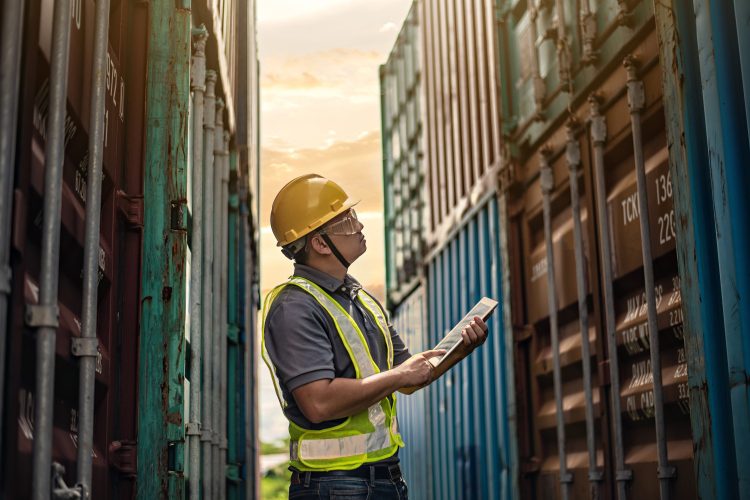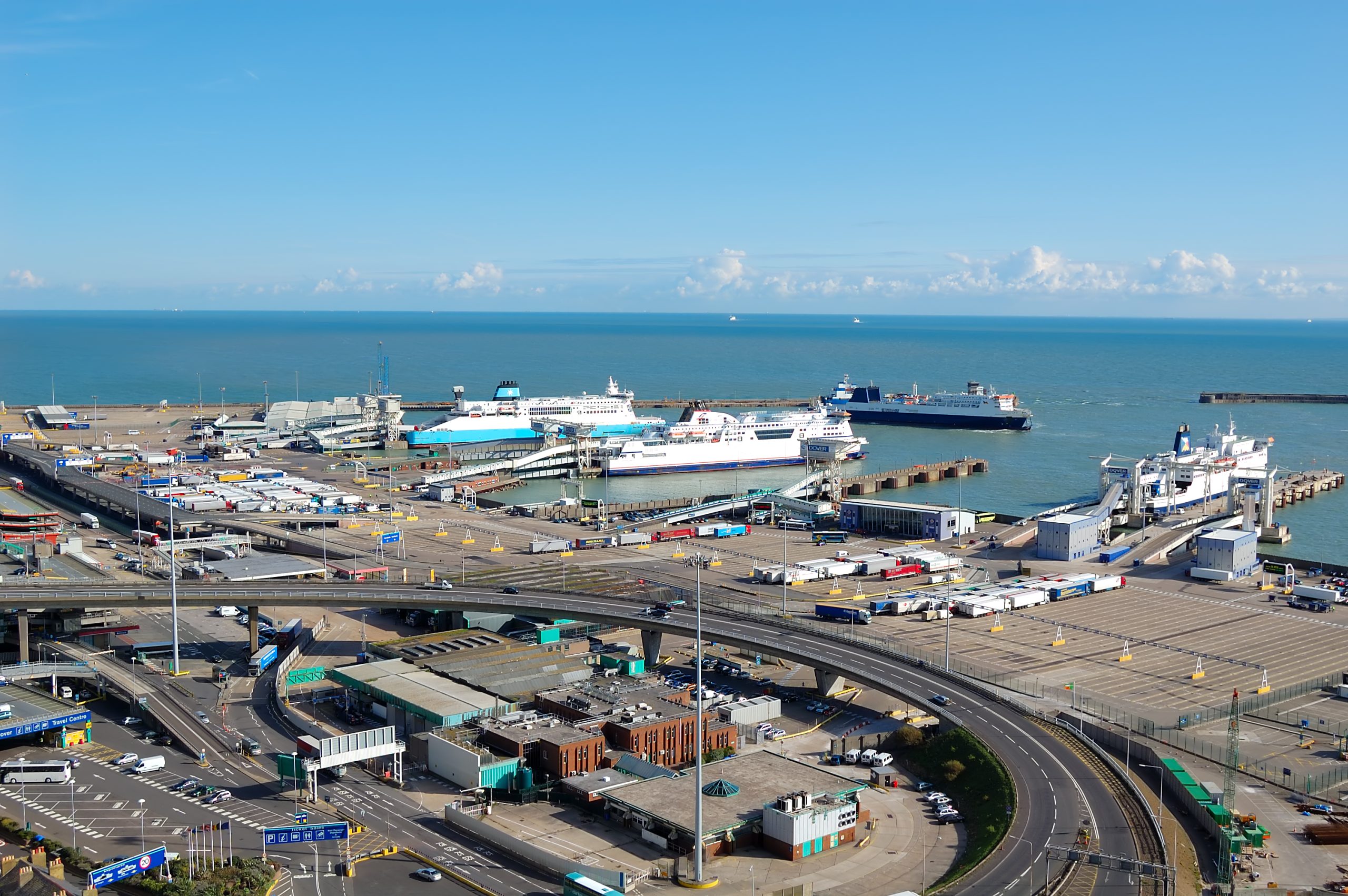EFRA Chair raises “serious concerns” over new Brexit checks
- Like
- Digg
- Del
- Tumblr
- VKontakte
- Buffer
- Love This
- Odnoklassniki
- Meneame
- Blogger
- Amazon
- Yahoo Mail
- Gmail
- AOL
- Newsvine
- HackerNews
- Evernote
- MySpace
- Mail.ru
- Viadeo
- Line
- Comments
- Yummly
- SMS
- Viber
- Telegram
- Subscribe
- Skype
- Facebook Messenger
- Kakao
- LiveJournal
- Yammer
- Edgar
- Fintel
- Mix
- Instapaper
- Copy Link
Posted: 8 February 2024 | Sir Robert Goodwill | No comments yet
Chair of EFRA, Sir Robert Goodwill shares “serious concerns” regarding biosecurity threats to UK’s agri-food sector following the implementation of BTOM and urges clarity on check funding cuts and Sevington facility concerns.


By Sir Robert Goodwill, Chair of the Environment, Food and Rural Affairs Committee (EFRA)
As Chair of Parliament’s Environment, Food and Rural Affairs Committee (EFRA) and as a working farmer myself, I have always been proud to champion our country’s strong farming sector. Ensuring the quality and safety of our food is a vital component of this. Were our domestic agri-food sector to be compromised by an animal disease such as foot and mouth or a plant disease like Xylella Fastidiosa, the cost to the sector and the consequences to our food supply chain would be devastating. That is why our EFRA Select Committee last week felt it necessary to write to the Defra Secretary of State, Steve Barclay, to raise our concerns over what we believe are real and serious threats to our domestic biosecurity.
We last week saw the start of the phased approach of the Border Target Operating Model. Our committee remains supportive of the BTOM, but we have concerns about its operation in practice. We wrote to the Environment Secretary on two specific areas of concern; cuts to the funding for spot checks for products of animal origin at the Port of Dover, and the location of the new facility for physical checks on products entering at Dover, which will be at Sevington, twenty-two miles away from the point of entry at Dover.
We will all be familiar with the devastation caused by the outbreak of foot and mouth disease in 2001. Our rural communities and our farming sector suffered tragic consequences, and the impacts were felt nationwide. It would be catastrophic were we to experience anything like this again. But stakeholders have sounded the alarm bells, that changes in the controls regime at the Port of Dover could pose serious domestic biosecurity risks.
Our committee has heard from Dover Port Health Authority that they are currently confiscating large amounts of illegal meat, smuggled in via the Port of Dover. They tell us that since the introduction of the current system of checks in September 2022, they have seized over sixty tonnes of illegal pork, with five and a half tonnes of illegal meat confiscated over the weekend before Christmas alone. Dover Port Health Authority told us that this is the tip of the iceberg and that controls need to be bolstered, and not reduced. We know that meat which is being brought into our country illegally poses significant potential risks to domestic biosecurity, given the devastating potential impacts of African swine fever and foot and mouth disease. Knowing the weight of this risk, it is important that there are efficient and adequate spot checks conducted on food and animal products.
Our committee holds serious concerns over Defra’s plans to reduce funding for checks on products of animal origin. We have heard suggestions that these cuts could be as much as seventy percent. As such, our letter to the Department asks for clarity on the current amount of funding in place for spot checks on these products at the Port of Dover and whether there are plans to change that funding. We also ask Defra to confirm how many checks are currently being undertaken on products of animal origin, at the Port of Dover, whether there are plans to change the number of checks being undertaken and what assessment it has made of the potential impact of a reduction in checks on the UK’s biosecurity.


EFRA has raised concerns regarding cuts to the funding for spot checks for products of animal origin at the Port of Dover, and the location of the new facility for physical checks on products entering at Dover, which is twenty-two miles away from the point of entry.
In addition to concerns we have over the impacts of potential cuts to funding for spot checks, our letter also draws attention to the issue of the location where checks are to be carried out. Starting from April 2024, the new BTOM regime will see Sevington, a site twenty-two miles inland from the point of entry at Dover, act as the new border control post. It is very worrying to us that the new arrangement will require vehicles to travel these twenty-two miles unsupervised across Kent. This presents potentially serious biosecurity risks and could also compromise compliance. From what our committee understands, drivers will be under no obligation to go to Sevington, if asked to do so. We are therefore asking the Secretary of State to inform us as to what safeguards will be in place to ensure the required loads do actually make this journey, and travel from the point of entry at Dover, to the Sevington site in Ashford, without either offloading goods on route or not turning up at Sevington at all.
Our letter also asks Defra to outline why it is pushing ahead with plans to use Sevington as the location for checks, given the serious concerns of key stakeholders, and we are also keen to establish what the Department plans to do with the facility at Bastion Point in Dover itself.
As a former Defra minister myself, I understand the complexities involved in the management of our animal and plant imports. There are many factors to be considered, but we can all agree that protecting our food sector from biosecurity threats should be a key priority. People will have their concerns over the possibility of increased food prices, but I would make the point that the costs would be far greater, should we ever find ourselves in a situation where diseased meat is illegally brought in, evades checks, and leads to an outbreak of African swine fever or foot and mouth.
About the author






